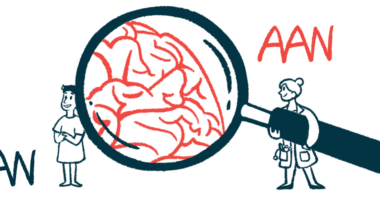Pharmacists Are the Backbone of My Care Team

As a rare disease patient living with neuromyelitis optica (NMO), I take an enormous number of medications. I have pills for blood pressure, steroid pills to suppress my immune system, and pills to protect my stomach from the side effects of the steroids.
I also take a handful of vitamins every day to protect my bones, which have been damaged by long-term steroid treatment. I have pills to relieve back spasms, and pills to keep my chronic pain down to a dull roar, which works better on some days than others.
I have a biologic infusion every two weeks to stave off NMO attacks, and two other biologic treatments two weeks apart every five months to keep my inflammatory arthritis at bay.
In addition to all of that, I’m a type 1 diabetic, so I have an insulin pump paired with a continuous glucose monitor to keep my blood sugar stable.
Sounds like a lot, right? It is. And just to add to the fun, I have several serious drug allergies.
All of this is challenging to manage, and there’s absolutely no way I could do so on my own. This is where my pharmacy team comes in.
For most people, a relationship with the pharmacist is casual. People drop off a prescription once in a while, and pick it up later, and that’s that. But as someone who lives with both rare and multiple chronic diseases, my pharmacist is extremely active and is an essential partner on my care team.
So, how does my pharmacist help me? Firstly, by being a gatekeeper of my safety. It’s my pharmacist’s job to ensure that none of the medications I take will cause an adverse interaction that could harm me. This is especially important because my medications and doses change constantly, making it impossible for me to keep everything straight without help.
Doctors, on occasion, can make mistakes. For example, I was once prescribed an over-the-counter supplement to help me sleep. The prescribing physician didn’t know the supplement was contraindicated for people taking immunosuppressants, because it decreases their effectiveness, which could lead to an NMO attack. Had my pharmacist not caught this, it could have been disastrous for me.
Sometimes the medications I take create unpleasant side effects. When that happens, I call my pharmacist to get advice about how to mitigate them.
Because most pharmacies here in Canada have longer and later hours than most physicians, it makes them infinitely more accessible at night or on weekends and holidays. There are even a few 24-hour pharmacies for emergencies. Help is always a quick phone call away.
One of the most valuable services my pharmacist offers is free, one-on-one medication consultations. Periodically, I book an appointment with them to go over all of my medications, noting what the dosages are, what I take them for, and how often.
My pharmacist then generates a list that I can carry in my wallet. This is helpful because it’s a long list, and when I’m at an appointment and am asked about my medications, I can hand over a photocopy of my list to be scanned directly into my chart. I can’t tell you how many times doctors have said they wished all of their patients did this. It not only saves them valuable time, but also allows for accuracy.
My pharmacist has used the one-on-one medication consultation to check for redundancies in medications I’m taking, and cancel or modify a certain prescription after talking with the prescribing physician. Changing a prescription can entail backing off on doses that are too high or medications that are no longer needed or working.
Many medications need to be tapered slowly, and pharmacists can help advise and supervise the process to ensure it’s done as safely as possible. I’ve had to do this a number of times for various reasons, and it’s been reassuring to have that support.
When a prescription runs out, my pharmacist automatically sends a fax to my doctor’s office to request a renewal, saving me a trip to the doctor’s office to make the request. They also have been generously delivering my meds to my home free of charge so that I can avoid public exposure and stay safe during the pandemic.
My pharmacist is an invaluable resource when it comes to managing my medications. The services my pharmacy team provides definitely make my life easier. They empower me to take better care of myself, and those on the team truly are partners in my care.
***
Note: Neuromyelitis News is strictly a news and information website about the disease. It does not provide medical advice, diagnosis, or treatment. This content is not intended to be a substitute for professional medical advice, diagnosis, or treatment. Always seek the advice of your physician or other qualified health provider with any questions you may have regarding a medical condition. Never disregard professional medical advice or delay in seeking it because of something you have read on this website. The opinions expressed in this column are not those of Neuromyelitis News or its parent company, BioNews, and are intended to spark discussion about issues pertaining to neuromyelitis optica spectrum disorder.







Comments